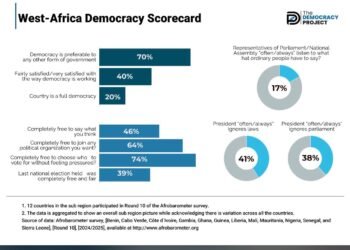Israel is a nation besieged by the looming threat of annihilation from its neighboring states, most notably Iran.
Amidst the diplomatic tensions and saber-rattling rhetoric, Iran’s leaders have made brazen public declarations, aired on television screens across the globe, calling for the utter obliteration of Israel.
In the face of such an existential threat, Israel finds itself grappling with a profound moral dilemma: how does a nation assert its right to exist when surrounded by adversaries bent on its destruction?
Every nation, by moral principle, possesses an inherent right to exist.
However, the principle of existence is being challenged for Israel due to the hostile intentions of its neighbors who perceive its existence as a threat to their aspirations of geopolitical influence.
Should Israel resort to the blunt instrument of military might, seeking to carve out its survival through sheer force and the spilling of blood?
Or does it chart a different course, one that eschews the path of violence in favor of dialogue, diplomacy, and the pursuit of alternative avenues to alter the prevailing mindset and ideology of its adversaries?
In times of conflict and turmoil, the impulse to use violence often overshadows rational discourse and peaceful resolution.
History is full of examples of nations and factions engaging in ideological warfare, believing that the force of arms alone can defeat opposing ideologies deemed as “bad” or “evil.”
However, the fallacy of this approach becomes increasingly evident when we scrutinize the fundamental nature of ideological battles.
At its core, an ideology is a set of beliefs, values, and principles that shape individuals’ and societies’ perceptions, actions, and aspirations. Ideologies can be potent forces, driving social change, inspiring revolutions, and shaping the course of history.
Yet, they are also resilient and deeply ingrained within the fabric of societies, often resistant to external pressures and coercion.
In the face of an ideology deemed hostile or detrimental, the knee-jerk reaction of many is to meet force with force, believing that eliminating individuals who support such beliefs will eradicate the ideology itself.
However, this approach overlooks the nuanced and multifaceted nature of ideologies. An ideology is not merely a collection of individuals; it is a complex web of ideas, narratives, institutions, and cultural norms that transcend individual lives.
History teaches us that attempting to defeat an ideology through violence often backfires, fueling resentment, and radicalization, and further perpetuating the cycle of conflict as in the case of Israel and Palestinians.
The use of force may suppress dissent temporarily, but it seldom uproots the underlying causes and grievances that give rise to the ideology in the first place.
Instead, it breeds a sense of martyrdom and defiance among adherents, strengthening their resolve and galvanizing support from sympathizers. The rallies, protests, and chanting “free Palestinians” say it all.
Moreover, resorting to violence in ideological warfare undermines the moral legitimacy of the cause supported by the opposing side.
Global Perception Matters
In the eyes of the world, the side that employs indiscriminate violence and disregards human rights forfeits its claim to moral superiority, tarnishing its image and alienating potential allies.
Have you noticed the gradual decline of support for Israel even from some of its staunch allies in the Israel-Hamas war?
In an age where global public opinion holds significant sway, winning hearts and minds is arguably as crucial as winning battles on the battlefield.
To truly defeat a destructive ideology, a multifaceted approach is required, one that addresses the root causes of discontent, empowers moderate voices, promotes education and critical thinking, and fosters dialogue and reconciliation.
Military force may have a role in containing immediate threats and providing security, but it cannot be the sole instrument of change.
Building inclusive societies, promoting social justice, and offering pathways to economic opportunity are essential components of any effective counter-ideological strategy.
Furthermore, it is essential to recognize that ideologies, even those deemed reprehensible, often emerge from genuine grievances, injustices, and inequalities.
Simply demonizing or dehumanizing adherents of opposing ideologies only serves to deepen divisions and entrench hostility.
Instead, a more empathetic and nuanced approach is needed, one that seeks to understand the underlying grievances and address them through constructive engagement and dialogue.
In conclusion, the fallacy of attempting to win an ideological war through bullets and brute force must be acknowledged and rejected.
True victory in ideological conflicts can only be achieved through a combination of diplomatic, economic, social, and cultural means.
By fostering understanding, tolerance, and cooperation, we can build a world where the power of ideas triumphs over the futility of violence.
READ ALSO: Free Speech Dead In The West?























